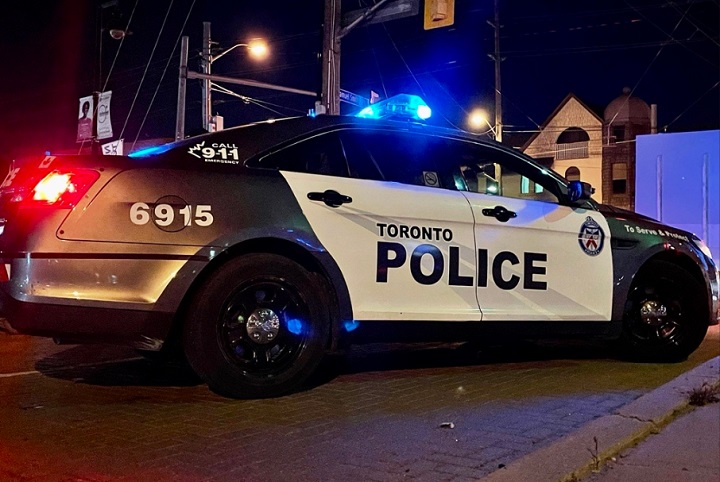Gov’t. Hopes To Secure Your Safety With a $250 Million Investment In Transportation Security
Posted June 16, 2006 12:00 pm.
This article is more than 5 years old.
It happened in London and Madrid and the federal government has announced a new $250 million anti-terrorism push to ensure the T.T.C. doesn’t become a target for terrorists.
Prime Minster Stephen Harper was at Pearson International Airport Friday to announce the four-step plan to beef up security at Canadian airports, marine ports and in the public transit systems of the country’s major urban centres.
“Tackling terror is not just something governments do abroad. As experience has shown around the world, the risk is often domestic and we have to be vigilant,” he said.
“Money is available to local transit authorities. The initiative will target the six largest metropolitan areas in the country, including Toronto, and they will develop plans in consultation with the federal government.”
Harper said this announcement wasn’t directly linked with the recent arrests of suspected terrorists in the G.T.A. and that this money was set-aside in the federal budget, which also included another $1 billion for security issues.
The four-step plan includes bolstering security at Canadian airports. Harper said luggage will be scanned more thoroughly and special attention will be paid to cargo shipped on passenger planes.
“Generally we’re doing all that we can to modernize our equipment and our procedures and look at safety and security and all modes of transportation, and at passengers generally,” Harper said.
The security strategy also involves providing more funds for the Canadian Air Transport Security Authority (C.A.T.S.A.). The Crown corporation is in charge of checking passports and protecting passengers.
And finally, the feds plan to upgrade marine port security by making ferry systems more secure and putting a system of background checks in place for port workers.
“This is how the fight against terrorism will be won, modernizing equipment and procedures, plugging the holes, filling the gaps, thinking one step ahead of the agents of hate and terror,” Harper said.
Although he has yet to learn the specifics, Toronto Mayor David Miller said Harper’s announcement was good news for the city.
“We have an application in to the federal government to put security cameras in subway stations and on our buses and streetcars,” he said. “We had been anticipating there would be an announcement to fund that, and I assume that’s what the Prime Minister announced today, which will be very helpful for the T.T.C.”
But Toronto N.D.P. M.P. Peggy Nash doesn’t think the cash Harper is promising is enough to cover the T.T.C.’s needs.
“In Toronto, in my city, the money they’re putting into transit is really just a fraction of what the T.T.C. has been looking for, for security measures,” she said.
Here’s a breakdown of the funding:
Air Cargo Security Initiatives: $26 million over two years
Air Passenger Screening: $133 million over two years to C.A.T.S.A.
Rail and Marine Security: $95 million over two years
Here are some of the finer points of the government’s security funding:
- Funding to enhance critical security in high-risk passenger rail and transit security operations. It will establish a new passenger rail and urban transit security contribution program, targeted towards the high volume passenger areas of commuter rail and urban transit, with a focus on major urban transit systems and equipment. This program will provide financial assistance to commuter rail and public transit operators in designated major metropolitan areas to accelerate the implementation of new and enhanced security measures.
- Funding to strengthen Canada’s capacity to provide surface transportation security leadership and expert assistance in the development of security assessments and plans, best practices and guidelines; enhance information sharing networks; strengthen incident tracking and trend analysis; conduct technology research and development programs targeted to high-volume passenger transportation; and coordinate international and intergovernmental efforts on surface transportation security.
- Funding to improve the readiness of Canada’s urban transport sector to respond to emergencies and to develop effective contingency plans. This funding will allow Canada’s New Government to partner with key jurisdictions and stakeholders to carry out complex inter-jurisdictional exercises in designated major metropolitan areas. These exercises are essential in preparing officials at all levels of government, as well as infrastructure owner-operators, first responders and law enforcement officers, for their roles in emergencies.
- Eligibility for Canada’s domestic ferry operators, including those that are part of urban transit systems, to apply for funding under the existing Transport Canada Marine Security Contribution Program to enhance the security of their facilities and vessels. Ferries and certain marine facilities will be given an additional two years to apply to the Marine Security Contribution Program (until November 2009).








